Only the man who has enough good in him to feel the justice of the penalty can be punished; the others can only be hurt
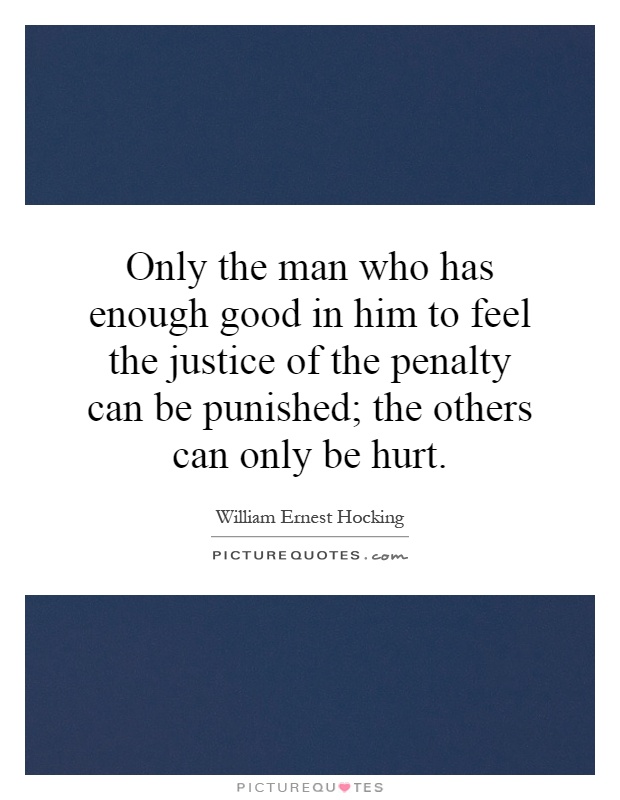
Only the man who has enough good in him to feel the justice of the penalty can be punished; the others can only be hurt
William Ernest Hocking was an American philosopher who believed in the importance of moral responsibility and the concept of justice. His quote, "Only the man who has enough good in him to feel the justice of the penalty can be punished; the others can only be hurt," reflects his belief that punishment should be reserved for those who are capable of understanding and accepting the consequences of their actions.Hocking's philosophy suggests that punishment is not simply about inflicting pain or suffering on individuals, but rather about holding them accountable for their actions and helping them to learn from their mistakes. In order for punishment to be effective, the individual must have a sense of moral responsibility and an understanding of why they are being punished. This requires a certain level of moral development and self-awareness, as well as the ability to empathize with others and recognize the impact of their actions on those around them.
According to Hocking, those who lack the capacity for moral reasoning and empathy are not truly capable of being punished in a meaningful way. Instead, they are simply being hurt or experiencing the consequences of their actions without fully understanding why. This distinction is important because it highlights the difference between punishment as a form of retribution or revenge, and punishment as a means of promoting moral growth and personal development.

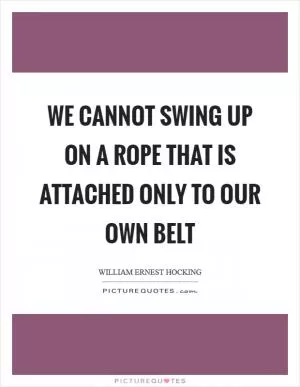




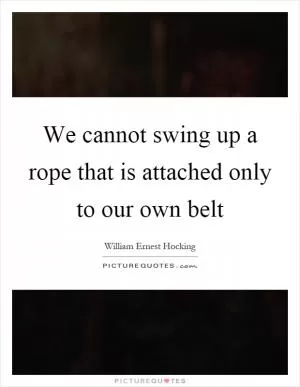

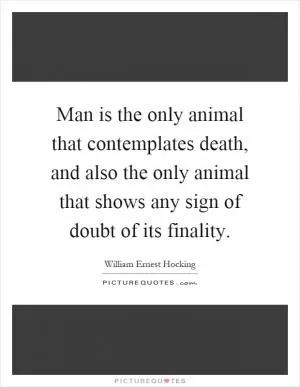


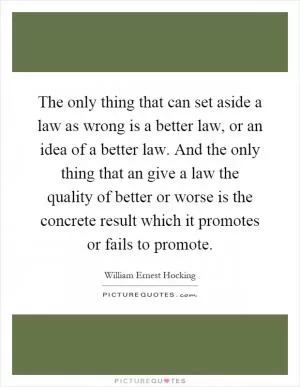
 Friendship Quotes
Friendship Quotes Love Quotes
Love Quotes Life Quotes
Life Quotes Funny Quotes
Funny Quotes Motivational Quotes
Motivational Quotes Inspirational Quotes
Inspirational Quotes